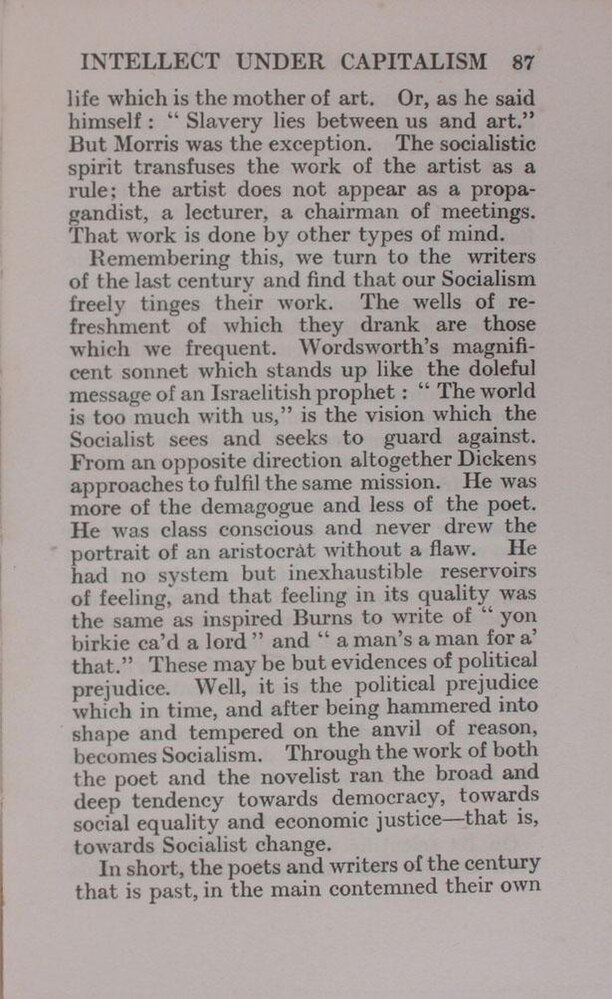life which is the mother of art. Or, as he said himself: "Slavery lies between us and art." But Morris was the exception. The socialistic spirit transfuses the work of the artist as a rule; the artist does not appear as a propagandist, a lecturer, a chairman of meetings. That work is done by other types of mind.
Remembering this, we turn to the writers of the last century and find that our Socialism freely tinges their work. The wells of refreshment of which they drank are those which we frequent. Wordsworth's magnificent sonnet which stands up like the doleful message of an Israelitish prophet: "The world is too much with us," is the vision which the Socialist sees and seeks to guard against. From an opposite direction altogether Dickens approaches to fulfil the same mission. He was more of the demagogue and less of the poet. He was class conscious and never drew the portrait of an aristocrat without a flaw. He had no system but inexhaustible reservoirs of feeling, and that feeling in its quality was the same as inspired Burns to write of "yon birkie ca'd a lord" and "a man's a man for a' that." These may be but evidences of political prejudice. Well, it is the political prejudice which in time, and after being hammered into shape and tempered on the anvil of reason, becomes Socialism. Through the work of both the poet and the novelist ran the broad and deep tendency towards democracy, towards social equality and economic justice—that is, towards Socialist change.
In short, the poets and writers of the century that is past, in the main contemned their own
